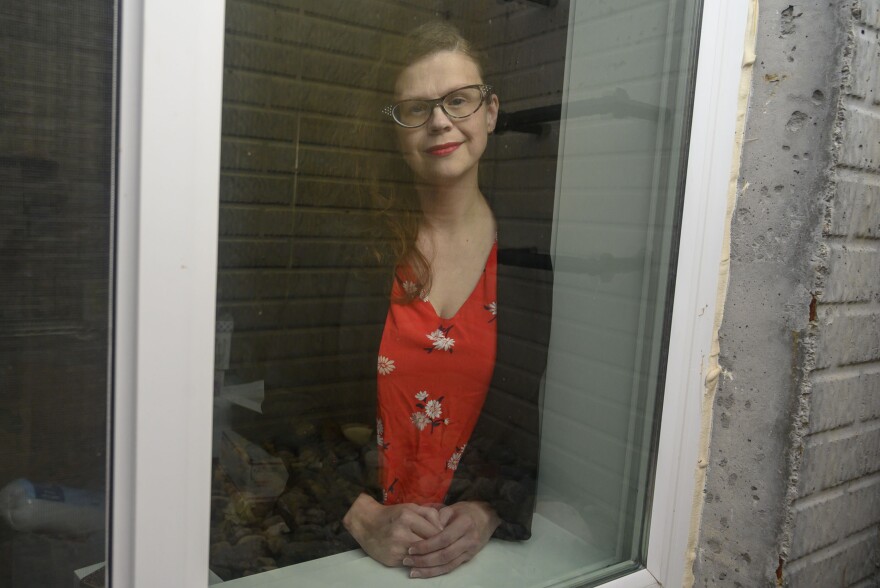The COVID-19 data available through the state has been confusing for many. The state has shifted how and what it releases for numbers several times in the past few months, and they've faced criticism for a lack of transparency. This has inspired some Iowans to do their own data tracking.
Every morning Ames resident Sara Willette logs onto Twitch, a platform typically used for livestreaming games, and gets to work - livestreaming spreadsheets on her COVID-19 data website.
Willette's website is filled with numbers, graphs and information and has become somewhat of an unofficial source for Iowans.
She spends hours every day creating tables and graphs that she says presents data in a way that’s much easier to grasp than the state’s official website.
"So they don't have to go jump into a tiny link at the bottom of the main page to see how many hospitalizations there are in their county. They don't have to calculate out what what like what percentage of their county is infected," she said. "These are data points, statistics that are missing on the state’s site."
Willette has a rare immunodeficiency that makes her more susceptible to getting sick. She’s been collecting data since the state announced its first COVID-19 cases in March.

She said the information eases her anxiety, and thinks it does the same for others. Her site gets thousands of hits daily, and she said she gets lots of data requests from people.
"There's a lot of us who are data literate that facts and science and data makes us think more clearly, and, like, understand whether or not it's safe to go to the grocery store on a Tuesday," Willette said.
Willette isn’t the only Iowan who has spent hours analyzing the state’s COVID-19 numbers.
Dana Jones, a nurse practitioner in Iowa City, made national headlines in early August when she revealed a glitch in the state’s system meant it was incorrectly backdating thousands of cases.
Jones said she has been tracking and recording numbers on her own since May just as a concerned citizen.
"I was trying to, you know, really understand how the pandemic was evolving and changing and trying to kind of gauge my own personal safety and the safety of my family based on trends," she said.
Jones said she now regularly connects with other independent data trackers around the state to compare information.
"We've all connected through all of this and talk about the different changes that we see and why we're seeing them why they matter," she said.
Megan Srinivas, an infectious disease specialist in Fort Dodge, said these data trackers have played a crucial role during the COVID-19 pandemic by independently scrutinizing the state’s data, which has been questioned at times by public health experts.
"Their ability to identify the holes and say where we think the real trajectory is going is invaluable," Srinivas said.
But Srinivas said she approaches the findings of independent data collectors with caution. They often don’t have backgrounds in biostatistics or public health.

"There's always a concern as to what the validity of their findings are, what they're basing their data on," she said. "And that's exactly why I'm very hesitant to automatically say so and so is right or so and so, as a person who should follow until I've had a chance to verify it myself, talk to them thoroughly."
Willette, a former administrative assistant, said she knows when it comes to stats and Excel, she’s mostly self-taught, and that’s why she opts for full transparency when updating her website by livestreaming her process.
"I don't want there ever to be like the thought process that I'm taking data from somewhere else and, like, my numbers are different than the state's numbers," she said.
Plus she said her husband, a doctor with training in biostatistics, double-checks her findings.
Recently Willette contracted with Iowa State Education Association to create a database of COVID-19 cases reported in the state’s K through 12 schools. This was after the state said it would not be creating its own.
This means Willette’s data collecting hobby is now more of a paid gig, but she said money has never been a motivator for her work.
"Even at the end of the day, I've worked like 16, 18 hours straight, I still feel good. like, knowing that I'm helping other people, and I'm making it so that they can make the decisions they need," she said.
Willette said she plans to keep tracking COVID-19 numbers for the rest of this pandemic.





